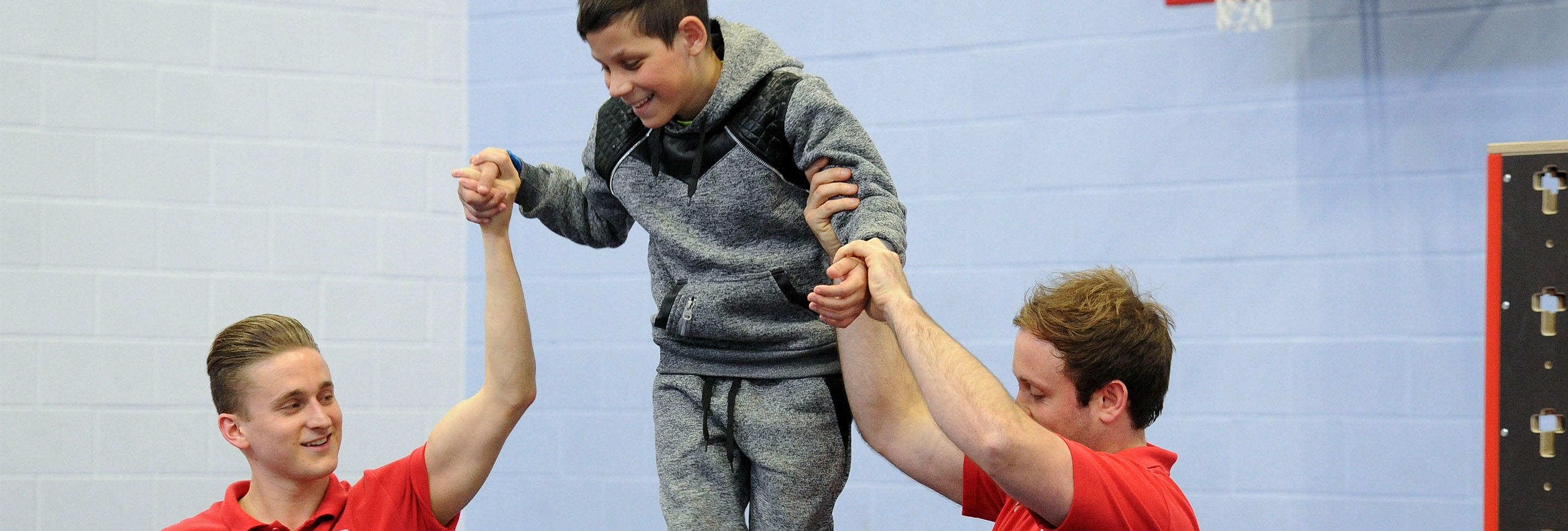First-of-its-kind study in the UK provides much-needed insight into the services required to support and improve lifelong physical development
Ground-breaking research has highlighted the need to improve sporting and physical activity opportunities for vision impaired children and young people.
The interim study, produced by the University of Central Lancashire (UCLan) in conjunction with British Blind Sport and the Thomas Pocklington Trust, found that while physical activity was a significant predictor of wellbeing, more than 90 percent of vision impaired children and young people spent their free time on sedentary activity.
Key findings of the independent study entitled: ‘The Exploration of Motor Competence in Children and Young People with Visual Impairment’ include:
- Physical activity was found to be a significant predictor of wellbeing.
- Children and Young People - Vision Impaired (CYP-VI) reported spending 91 percent of their free-time involved in sedentary activity.
- Physical education lessons are where most CYP-VI reported being most physically active and education settings offer the best environment for engaging and supporting CYP-VI to become more physically active.
- Schools are the most critical sites for motor competence development.
- There was more concern around engagement in PE lessons amongst families and industry professionals during Key Stages 2, 3 and 4 compared Key Stage 1.
Commenting on the research, UCLan’s Senior Lecturer in Sports Studies Dr Jessica Macbeth said: “This project with British Blind Sport and Thomas Pocklington Trust has enabled UCLan to utilise its expertise conducting research with visually impaired individuals, in this instance focussing on children and young people. The study is the first of its kind in the UK and will provide much-needed insight to inform key stakeholders about the needs and experiences of this age group. In doing so, we hope the research will contribute to the development of opportunities that enable more visually impaired children to engage in sport and physical activity which in turn will lead to improved lifelong participation amongst individuals with visual impairment. We look forward to completing the motor competence testing and sharing the findings of the whole project in the coming months.”
"The study is the first of its kind in the UK and will provide much-needed insight to inform key stakeholders about the needs and experiences of this age group."
— UCLan’s Senior Lecturer in Sports Studies Dr Jessica Macbeth
Alaina MacGregor, Chief Executive of British Blind Sport, added: “We are pleased to have been working in partnership with Thomas Pocklington Trust and the University of Central Lancashire on this important piece of research. The findings offer a unique insight and highlights the barriers to participation faced by many young children living with a visual impairment. Sport and physical activity have been proven as a powerful tool in improving people’s lives. The outcomes of this report will assist us and many of our stakeholders to develop services supporting early intervention and help remove obstacles to participation at a vital stage for physical development in a child’s life. The research demonstrates the need to raise awareness and ensure that all young people with sight loss have access to physical education opportunities that help them to develop motor skills, get active and lead healthier and happier lives.”
Charles Colquhoun, Chief Executive at Thomas Pocklington Trust, said: “Since sport and physical activity are so closely linked to motor competence development in young people we were keen to support this work. We believe every child should have the same opportunities to participate in physical activity and we were particularly interested in the findings related to participation in schools. We appreciate this is just the interim report but the headline findings already raise a number of key issues and recommendations.”
The ground-breaking research study utilised multiple analysis methods, including quantitative and qualitative data in the form of motor competence testing, questionnaires and interviews. Participants included children and young people with visual impairments, their parents or carers, and a range of key stakeholders. Due to the Covid-19 pandemic, the motor competence testing element of the research was postponed until it was safe to resume face-to-face research. The interim report summarises the research findings to date. The research team will be conducting further analyses and report additional, potentially more meaningful, findings and results in due course.
The full report is available to download via the British Blind Sport website.

